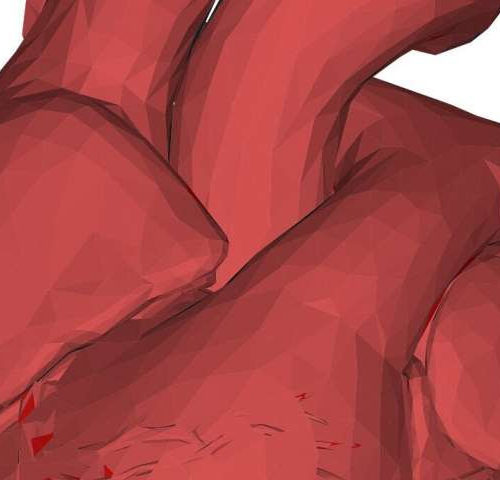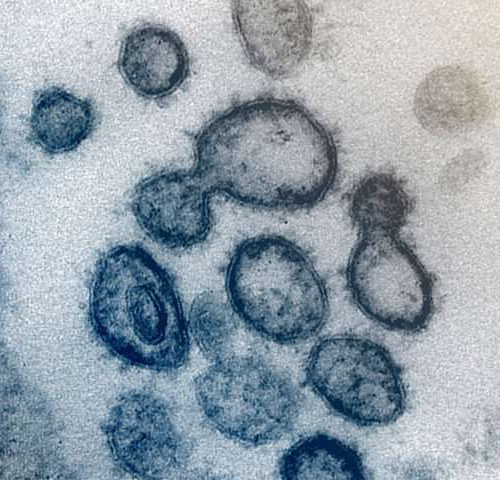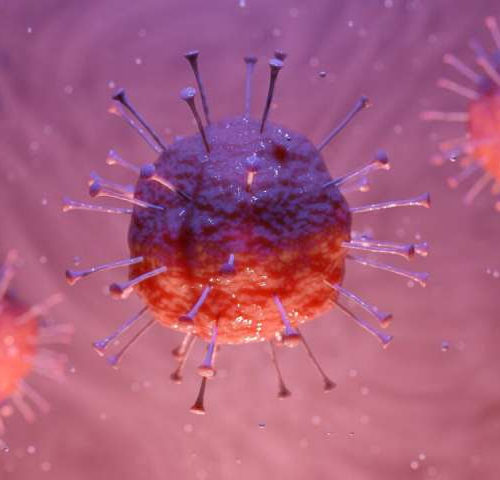Existing vaporized hydrogen peroxide methods can decontaminate N95 face masks for reuse, confirm research and clinical teams. Health care providers are facing a critical shortage of N95 face masks that block the coronavirus. The process uses specialized equipment to aerosolize hydrogen peroxide, which permeates the layers of the mask to kill germs, including viruses, without...
COVID-19 linked to cardiac injury, worse outcomes for patients with heart conditions
by University of Texas Health Science Center at Houston COVID-19 can have fatal consequences for people with underlying cardiovascular disease and cause cardiac injury even in patients without underlying heart conditions, according to a review published today in JAMA Cardiology by experts at The University of Texas Health Science Center at Houston (UTHealth). Experts have...
Analysis predicts purified fish oil could prevent thousands of cardiovascular events
Researchers from the University of California, Irvine have conducted a statistical analysis that predicts more than 70,000 heart attacks, strokes and other adverse cardiovascular events could be prevented each year in the U.S. through the use of a highly purified fish oil therapy. Led by Nathan D. Wong, PhD, professor and director of the Heart...
US lab unveils portable 5-minute COVID-19 test
A US-based lab has unveiled a portable test that can tell if someone has COVID-19 in as little as five minutes, it said in a statement Friday. Abbott Laboratories said the US Food and Drug Administration (FDA) had given it emergency authorization to begin making the test available to healthcare providers as early as next...
COVID-19 pandemic: Don’t tell people off, tell them how to help
by Sarah Whitebloom, Oxford Science Blog People need simple choices, not suggestions, in the Covid-19 crisis—so they do things that are good for them and for the community by default, according to Dr. Kate Orkin, senior research fellow in behavioral economics with Oxford’s Blavatnik School of Government. Dr. Orkin points out that, in Choice Architecture,...
Not all find comfort while ‘safe at home’: Protecting the vulnerable from COVID-19
by Nadine Wathen, University of Western Ontario Being safe at home isn’t possible for everyone during this COVID-19 crisis. It’s important rethink what we mean by “home” and “safe”—from the comings-goings of essential workers potentially exposing loved ones every time they open the front door, to the many people in our community without a front...
COVID-19 patients often infected with other respiratory viruses, preliminary study reports
by Krista Conger, Stanford University Medical Center About one in five people with COVID-19 are also infected with other respiratory viruses, according to a preliminary analysis led by Ian Brown, MD, a clinical associate professor of emergency medicine at the Stanford School of Medicine. In addition, the analysis found that about one in 10 people...
NIH-funded studies show stents and surgery no better than medication, lifestyle changes at reducing the risk for heart attack
NIH-funded studies find stents, surgery provide higher quality of life for those with chest pain NIH/NATIONAL HEART, LUNG AND BLOOD INSTITUTE Invasive procedures such as bypass surgery and stenting–commonly used to treat blocked arteries–are no better at reducing the risk for heart attack and death in patients with stable ischemic heart disease than medication and...
‘Revita’ improves blood glucose levels, liver metabolic health in type 2 diabetes
THE ENDOCRINE SOCIETY WASHINGTON–Patients with poorly controlled type 2 diabetes who underwent a novel, minimally invasive, endoscopic procedure called Revita® duodenal mucosal resurfacing (DMR) had significantly improved blood glucose (sugar) levels, liver insulin sensitivity, and other metabolic measures three months later, according to new data from the REVITA-2 study. These results, from a mixed meal...
COVID-19: Frequently asked questions
Patient-physician relationship questions What tips should I give my patients to prevent the spread of novel coronavirus (SARS-CoV-2)? During a COVID-19 pandemic, patients should be careful to practice good hygiene: Minimize contact with those who are sick Avoid touching your eyes, nose and mouth Stay home when you are sick Cover your cough or sneeze...





